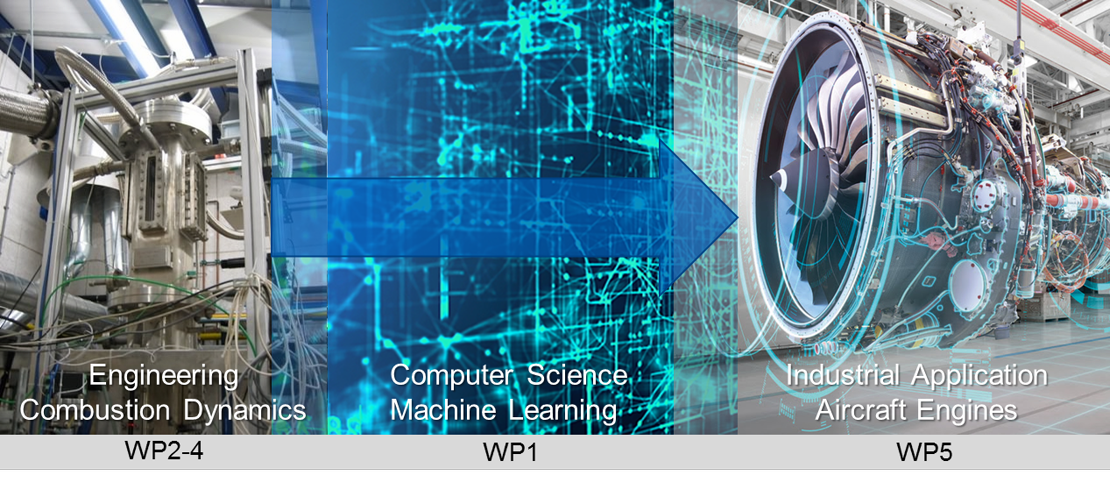The researchers of the innovative training network (ITN) MAGISTER will study one of the most persistent challenges in aircraft engine development by using a completely new approach: controlling acoustic oscillations in aircraft engine combustors with machine learning methods. Over the last decades, the emission regulations for aircraft engines have been steadily tightened. To meet these stringent regulations, new airplane engine technology has been introduced and is in further development. Two key aspects are (i) an increase in compression ratio for higher efficiency and (ii) new clean combustion technology.
This project focuses on this new clean combustion technology and its interaction with the increased compression ratio. This development introduces a large risk for reduced reliability and lifetime of engines: pressure oscillations in the combustor called thermoacoustics. Much research has been dedicated to studying this phenomenon over the last decades with mixed success. Industrial experience shows that the pressure oscillations only surface when the full engine has been built and tested. Traditional engineering methods fall short of predictability during the design of the engines due to a high sensitivity of thermoacoustics with respect to several barely known input parameters.
The high uncertainty involved in predicting and controlling thermoacoustics in aircraft engines will be addressed in this ITN by a self-adapting approach based on machine learning, i.e. applying methods originally developed in computer sciences to an engineering problem in a multi-disciplinary network. There will be a collaboration between computer science and engineering in order to use a multidisciplinary approach to solve conventional engineering problems with self-learning algorithms. The input is balanced with four ESR’s in computer science, six ESR’s in engineering and five in the overlapping part.
The MAGISTER network is organized in 8 work packages. The first work package is dedicated to research in machine learning and ESR’s 1 to 4 are going to work in this area. Machine learning requires a training data set to generate a model without being explicitly programmed. This training database will be generated in three work packages by combustion simulations (WP2), acoustic models (WP3) and experimental validation data (WP4). The new models obtained through machine learning in WP1 and based on the training data from WP2-4 are then applied in WP5 to predict thermoacoustics in aircraft engines. The participation of the major aircraft engine OEMs (GE, Rolls Royce, Safran) ensures industrial relevance and outreach of the results.
The MAGISTER project will shape early-career talents in a network of world-leading scientists and industrial partners to work on one of the most severe design issues in aviation technology in the spirit of the fourth industrial revolution, which will allow them to grow in the future European market of aviation technology.

